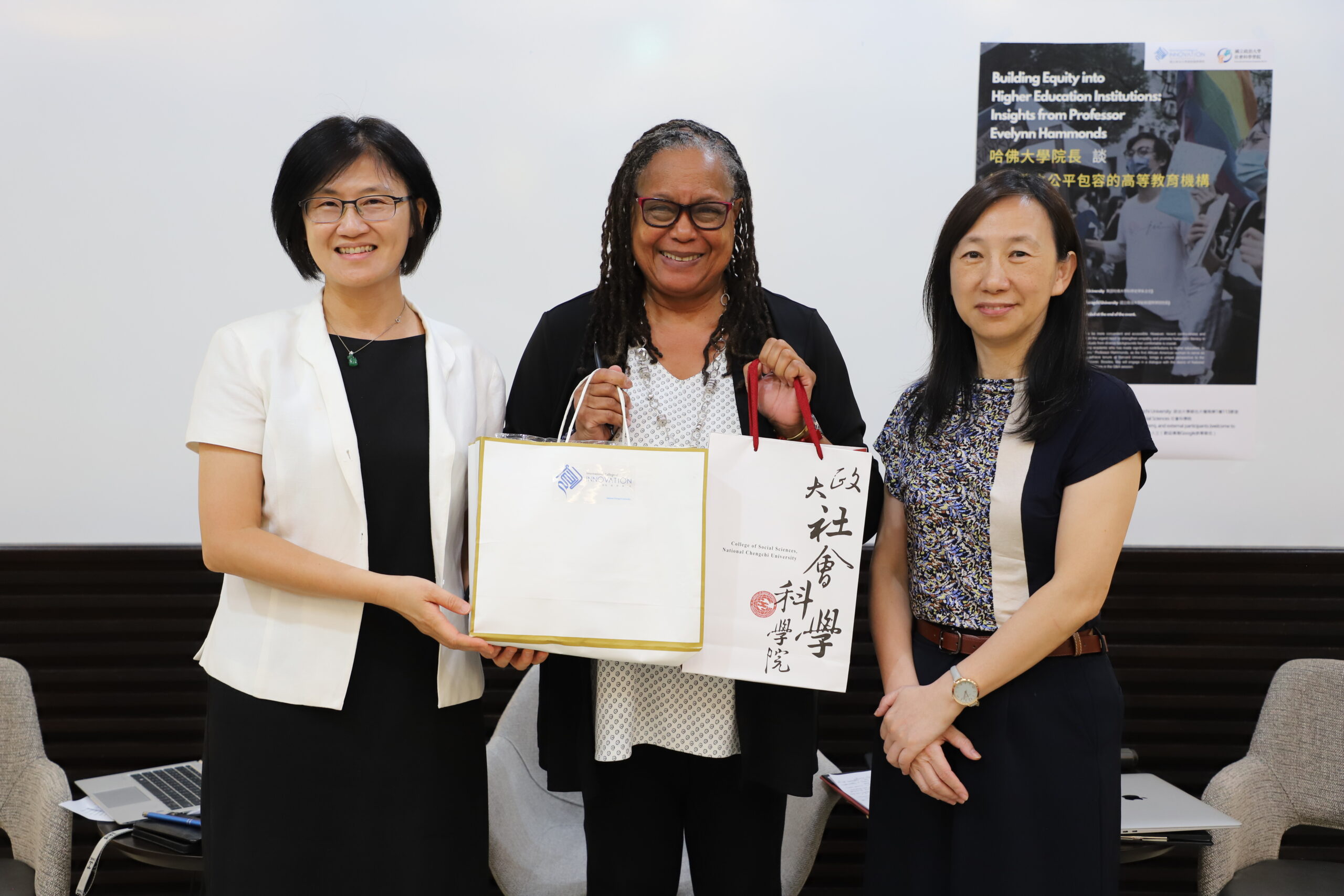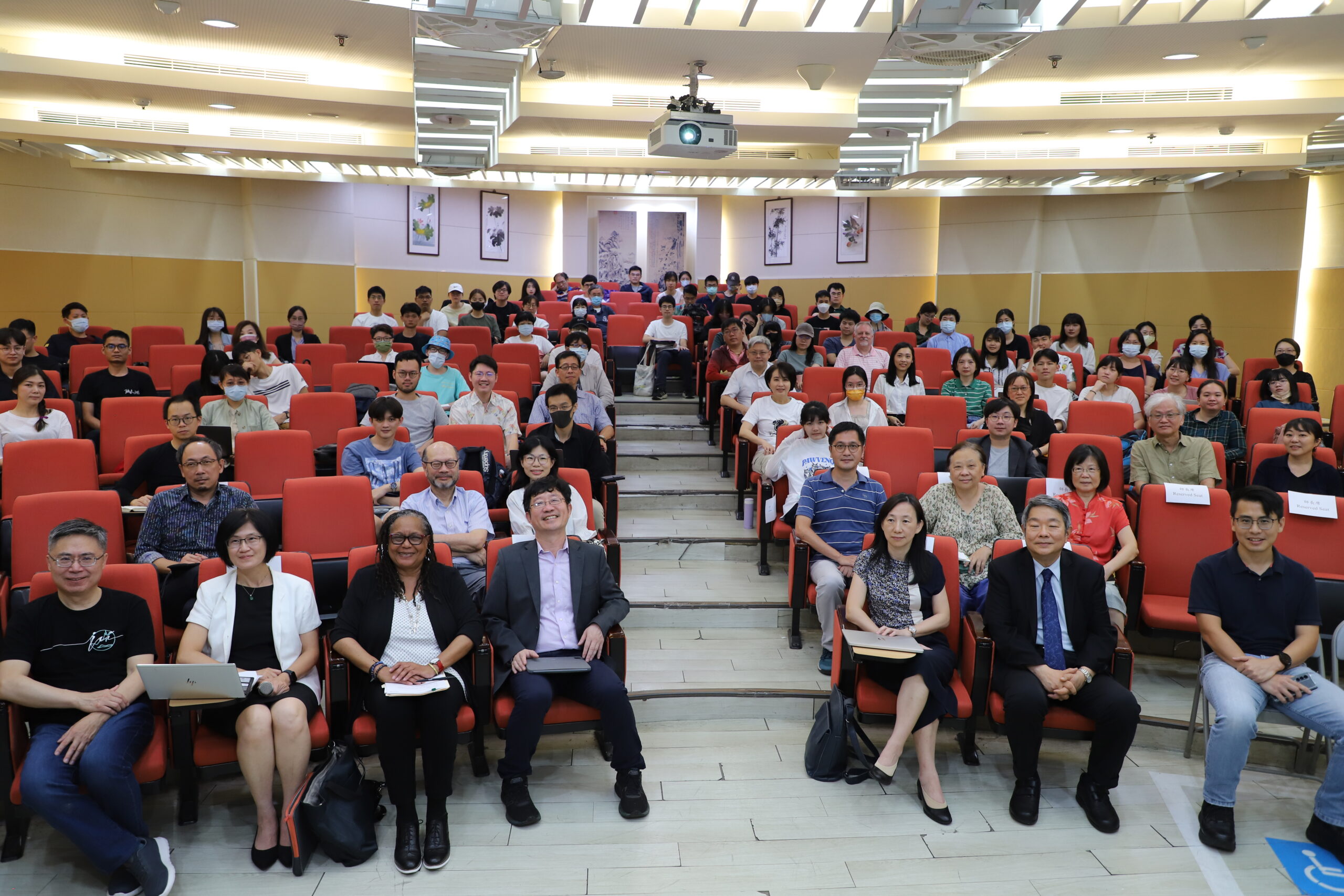

【Article by International College of Innovation】
In recent times, incidents of discriminatory statements targeting ethnicity, gender, and minorities on university campuses have sparked debates and discussions, highlighting the pressing need to foster a culture of respect and humanistic values. On June 19, the International College of Innovation (ICI) and the College of Social Sciences at National Chengchi University (NCCU), along with the journal East Asian Science, Technology, and Society: An International Journal (EASTS), are honored to invite Dr. Evelynn Hammonds, a professor of history of science at Harvard University and former dean of Harvard College, to deliver a keynote speech exploring the promotion of equity in higher education. As Professor Shu-Heng Chen, Vice President of NCCU, demonstrated in the welcome remark, with over 600 international students, NCCU strives to build a learning environment that values multiple languages, diverse perspectives, and inclusivity. “The values of diversity and inclusivity are frequently discussed, but their implementation and realization require sustained and arduous efforts,” said Professor Wen-Ling Tu, Dean of ICI. Drawing on the example of ICI, which has students from over 20 countries, daily practices of collaboration, conflict resolution, and innovative teaching designs foster cross-border understanding, making it an experimental field for internationalizing higher education in Taiwan. Established for three years, ICI employs interdisciplinary approaches to address the challenges of equity, diversity, and inclusiveness. Still, NCCU draws inspiration from institutions like Harvard University to reaffirm a deeper commitment to the humanistic spirit and the pursuit of equity.
Based on her experience of being the first Senior Vice Provost for Faculty Development and Diversity at Harvard University, and decades of advocacy for equity within educational institutes around the United States, Professor Hammonds shared her insight that gender and racial barriers in higher education have been gradually broken down due to the increasing advocacy of equal rights for minority groups. However, the underrepresentation of minority groups persists at the undergraduate, graduate, and leadership levels.
Professor Hammonds emphasized the distinction between “equality” and “equity,” noting that while the term equality “is linked to the idea that everyone has the same rights, enjoying equal treatment and non-discrimination,” true equity “goes further and includes needs-based support to level out the existing and relative disadvantage.” At Harvard, Climate Survey is one of the main ways to implement equity. Through the survey, data collection emerged as a vital tool in gaining a more genuine understanding of how women, minorities, and everyone in the faculty feel about campus. This data-driven approach enables administrators to identify and rectify institutional inequalities, fostering necessary reforms to the learning and working environments. For instance, although Harvard University has implemented affirmative action, which includes certain quotas for specific demographic groups during admissions, it continues to grapple with racial and gender inequality. Professor Hammonds indicates that achieving true equity in the United States will likely require another 70 years. To speed up this process, institutional leaders shall deepen their understanding of these issues. Additionally, the survey also shows that the school’s pregnancy and parental leave policies are expected to be more supportive, ensuring that educators do not feel indirectly discouraged from having children while pursuing their careers.
This dilemma of work-family balance especially faced by young female scholars, who are often assumed to take the responsibility of care-giving was discussed deeply in the dialogue with Professor Wen-Ling Tu, Dean of ICI and Professor Wan-Ying Yang, Dean of CSS. While the systematic institutionalization of parental leaves, institutional support for adjusting work schedules, and adequate human resources to accommodate leaves are very important, the shift in mindset that slowing down is acceptable in order to embrace the need for the family time was also emphasized.
Another significant issue addressed was the impact of technology on students and the educational environment. Issues of online harassment and hate speech were brought up during the open discussion session, with students voicing their concerns regarding the anonymity of the internet and its negative effects. Despite acknowledging that easier access to resources facilitated by technology can benefit the learning experience of students, Professor Hammonds agreed that social media also undermine friendly discussions. Therefore, she stressed the awareness of personal accountability online and encouraged in-person engagement to analyze and discuss how race, sex, gender, and religious differences work in society – instead of making personal attacks or merely thinking about one’s own feelings – are vital for creating a more respectful environment. Following this argument, Professor Yang also shared the experience of conducting a community mutual help program where students openly share their difficulties, aiming to foster communication and reconnect individuals.
The thought-provoking speech by Professor Evelynn Hammonds left NCCU and attendees inspired. The valuable insights shared during the event will catalyze ongoing dialogue, introspection, and concrete actions to create a more equitable and inclusive educational landscape.





